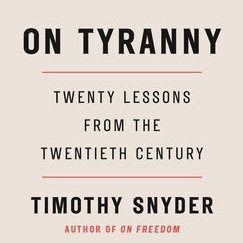The trampoline park is a long windowless building of springy room-sized black boxes, filled with the dusty chemical smell of partially sanitized grime. Fluorescent light scatters down on us from the rafters, and toddlers shimmy along to Van Halen’s “Jump.” There is a pit of foam blocks, a row of basketball hoops low enough for children to make trampoline-assisted slam dunks, and a dodge ball court that I have rented with university funds for the amusement of my eighteen and nineteen-year old college students. We have been told by the trampoline park’s welcome email to expect “a WOW! experience” as well as the possibility of death, a known risk for which we cannot sue.
Per trampoline-park guidelines, we are all sock-footed in identical pairs of hunter-orange ankle socks treaded with sticky white stripes that cling to all surfaces. I’m squeamish about the thought of entering the women’s restroom without the shoes I have already surrendered to a staff member, but I am more moved by my fear that, jumping on a trampoline for the first time in at least twenty years, I will accidentally pee myself. In the bathroom, feet positioned as far away from the toilet as is humanly possible, thinking about my surgically rearranged knee and the dodge ball games I played in gym class some time in the late 1980s, it occurs to me that maybe I have taken a wrong turn. Should this, here, a Sunday afternoon in the compulsory zaniness of a children’s “fun zone” really be what it looks like to be a college professor?
To be clear, this trip is not officially part of my job. I am here because I am voluntarily teaching in an enrichment program for first-year college students that includes extracurricular activities, because I let the students select our final class outing (I would have preferred dinner or maybe a play), and because I was trying to seem like someone who was more relaxed than I am.
This—pretending to be relaxed, trying to get to know each other—is, I think, the point of these trips. This is a Catholic university, and most of my students went to small Catholic high schools. They are polite; they respect authority. They do their homework; they raise their hands before they speak; they say “thank you” when I hand back quizzes. But this is a required class, and I often have the feeling that writing—or at least the way I teach writing—perplexes them. They understand the point of learning to write, but they want me to give them clear-cut rules. They wish we wrote more five-paragraph essays and spent more time studying grammar.
When it’s time for dodge ball, we count off into two teams, and I hide in the back row behind my tallest, most athletic student, bouncing back and forth in my grid, trying to stay out of the way. Time passes slowly. It’s the constant jumping, but also the strangeness of the situation. My students and I are throwing things at each other. When we get down to a handful of students on our side and one student on the opposing side, a twenty-something trampoline park employee points at me, and my student shakes his head.
“I can’t do it,” he says. “Sorry.”
“Go ahead,” I say, but instead he targets the best player on our team, a tall guy with a good arm, and eventually gets him. Then—finally, when it’s just the two of us, he halfheartedly lobs a few easy throws at my calves and then, with visible relief, he catches one of the balls I throw, ending the game. This is absurd, his face says, and I agree, but also, I realize with a surge of joy, that even the students who argued most persuasively to take this field trip now seem to think it was a bad idea. About as fun as taking their fifty-year-old parents to a rock concert.
I’m relieved. I give myself permission to choose future field trips. Next semester, we’ll go to a museum or a movie or visit the Library of Congress. It won’t be a “WOW! experience” but it will be fun in the quiet, challenging way that most of adult pleasures are fun. It will be—almost—like school.
Marian Crotty is an Assistant Editor for The Common.


